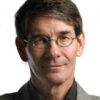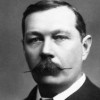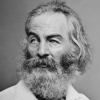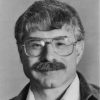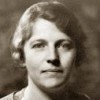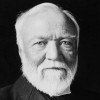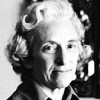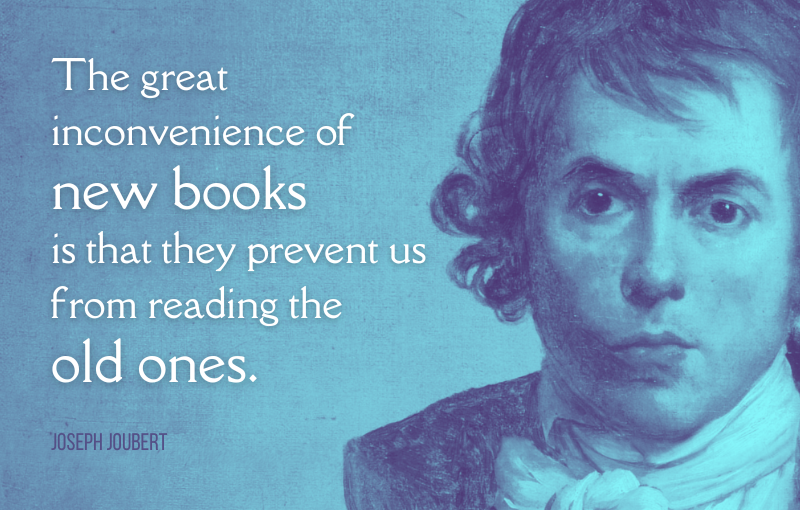Library books were, I suddenly realized, promiscuous, ready to lie in the arms of anyone who asked. Not like bookstore books, which married their purchasers, or were brokered for marriages to others.
Quotations about:
library
Note not all quotations have been tagged, so Search may find additional quotes on this topic.
The walls of books around me, dense with the past, formed a kind of insulation against the present world and its dangers. I hated to get up.
Ross Macdonald (1915-1983) American-Canadian author [pseud. of Kenneth Millar]
The Chill, ch. 8 (Lew Archer) (1963)
(Source)
Often misquoted in the third person ("The walls of books around him ...")
The world is a library of strange and wonderful books, and sometimes we just need to go prowling through the stacks.
Michael Dirda (b. 1948) American book critic
Book by Book: Notes on Reading and Life, ch. 8 (2005)
(Source)
I think the health of our civilization, the depth of our awareness about the underpinnings of our culture, and our concern for the future can all be tested by how well we support our libraries.
Carl Sagan (1934-1996) American scientist and writer
Cosmos, ch. 11 “The Persistence of Memory” (1980)
(Source)
Besides, I like libraries. It makes me feel comfortable and secure to have walls of words, beautiful and wise, all around me. I always feel better when I can see that there is something to hold back the shadows.
If you have a garden and a library, you have everything you need.
[Si hortum in bibliotheca habes, deerit nihil.]
Marcus Tullius Cicero (106-43 BC) Roman orator, statesman, philosopher
Epistulae ad Familiares [Letters to Friends], Book 9, Letter 4 “To Varro” (9.4) (46-45 BC)
In June 708 AUC. Sometimes rendered "nihil deerit."
Alt. trans.: "If you have a garden in your library, everything will be complete." [Source].
Original Latin in context.
A man should keep his little brain-attic stocked with all the furniture that he is likely to use, and the rest he can put away in the lumber-room of his library, where he can get it if he wants it.
Arthur Conan Doyle (1859-1930) British writer and physician
“The Five Orange Pips,” The Strand (Nov 1891)
(Source)
The owner of the library is not he who holds a legal title to it, having bought and paid for it. Anyone and everyone is owner of the library who can read the same through all the varieties of tongues and subjects and styles, and in whom they enter with ease and take residence and force toward paternity and maternity, and make supple and powerful and rich and large.
Walt Whitman (1819-1892) American poet
Leaves of Grass, Preface (1855)
(Source)
Reprinted on the wall of Atlantis Books, Oia, Santorini, Greece.
Of human knowledge as a whole and in every branch of it, by far the largest part exists nowhere but on paper, — I mean, in books, that paper memory of mankind.
[Von dem menschlichen Wissen überhaupt, in jeder Art, existirt der allergrößte Theil stets nur auf dem Papier, in den Büchern, diesem papiernen Gedächtniß der Menschheit.]
Arthur Schopenhauer (1788-1860) German philosopher
Parerga and Paralipomena, Vol. 2, ch. 21 “On Learning and the Learned [Über Gelehrsamkeit und Gelharte],” § 254 (1851) [tr. Saunders (1890)]
(Source)
(Source (German)). Alternate translation:
Of human knowledge in general and in every branch thereof, by far the greatest part exists always only on paper, in books, this paper-memory of mankind.
[tr. Payne (1974)]
Ah, Stefan, give me a man or woman who has read a thousand books and you give me an interesting companion. Give me a man or woman who has read perhaps three and you give me a dangerous enemy indeed.
Anne Rice (b. 1941) American author [b. Howard Allen Frances O'Brien]
The Witching Hour, Part 2 (1990)
(Source)
Books to the ceiling, books to the sky.
My pile of books are a mile high.
How I love them!
How I need them!
I’ll have a long beard by the time I read them.
Books serve to show a man that those original thoughts of his aren’t very new after all.
Abraham Lincoln (1809-1865) American lawyer, politician, US President (1861-65)
(Attributed)
(Source)
Recounted in the Pennsylvania School Journal, Vol. 46, #7 (Jan 1898) as an anecdote from a clergyman printed in the New York Tribune.
The book has been man’s greatest triumph. Seated in my library, I live in a Time Machine. In an instant I can be transmitted to any era, any part of the world, even to outer space. I have lived in every period of history. I have listened to Buddha speak, marched with Alexander, sailed with the Vikings, ridden in canoes with the Polynesians. I have been at the courts of Queen Elizabeth and Louis XIV; I have been a friend to Captain Nemo and have sailed with Captain Bligh on the Bounty. I have walked in the agora with Socrates and Plato, and listened to Jesus deliver the Sermon on the Mount.
Best of all, I can do it all again, at any moment. The books are there. I have only to reach up to the shelves and take them down to relive the moments I have loved.
We are of opinion that instead of letting books grow moldy behind an iron grating, far from the vulgar gaze, it is better to let them wear out by being read.
Jules Verne (1828-1905) French novelist, poet, playwright
Journey to the Center of the Earth (1864)
(Source)
Consider as well that, however one may sing the praises of those who by their virtue either defend or increase the glory of their country, their actions only affect worldly prosperity, and within narrow limits. But the man who sets fallen learning on its feet (and this is almost more difficult than to originate it in the first place) is building up a sacred and immortal thing, and serving not one province alone but all peoples and all generations. Once this was the task of princes, and it was the greatest glory of Ptolemy. But his library was contained between the narrow walls of its own house, and Aldus is building up a library which has no other limits than the world itself.
Desiderius Erasmus (1465-1536) Dutch humanist philosopher and scholar
The Adages, “Make Haste Slowly [Festina Lente]” (1508 ed.)
(Source)
Discussing the Aldine Press, the first modern publishing house. In Margaret Mann Phillips, ed., Erasmus on His Times (1967).
Consider what you have in the smallest chosen library. A company of the wisest and wittiest men that could be picked out of all civil countries, in a thousand years, have set in best order the results of their learning and wisdom. The men themselves were hid and inaccessible, solitary, impatient of interruption, fenced by etiquette; but the thought which they did not uncover to their bosom friend is here written out in transparent words to us, the strangers of another age.
The covers of this book are too far apart.
Ambrose Bierce (1842-1914?) American writer and journalist
(Attributed)
One-sentence book review. First attributed to Bierce in 1923, but showing up in anonymous humor as early as 1899. See here for more information.
Books are not made for furniture, but there is nothing else that so beautifully furnishes a house.
Henry Ward Beecher (1813-1887) American clergyman and orator
“The Duty of Owning Books” (1859), Eyes and Ears (1862)
(Source)
The collection of essays is from articles originally printed in the New York Ledger or Independent. This essay was reprinted in several other newspapers in the spring and summer of 1859.
See Sydney Smith.
If these writings of the Greeks agree with the book of God, they are useless and need not be preserved; if they disagree, they are pernicious and ought to be destroyed.
Umar I (c. 583-644) Arab caliph, jurist [Omar, Umar ibn Al-Khattāb, Al-Farooq]
(Attributed)
Ordering the burning of the Library of Alexandria in AD 641, as quoted in Edward Gibbon, The Decline and Fall of the Roman Empire (1776-88). The story is generally considered spurious. More discussion here. Alt. trans.: "They will either contradict the Koran, in which case they are heresy, or they will agree with it, so they are superfluous"
Whatever agencies for good may rise or fall in the future, it seems certain that the Free Library is destined to stand and become a never-ceasing foundation of good to all the inhabitants.
To a historian, libraries are food, shelter, and even muse.
Barbara W. Tuchman (1912-1989) American historian and author
“The Houses of Research,” Authors Guild Bulletin (Mar 1972)
(Source)
Books are the carriers of civilization. Without books, history is silent, literature, dumb, science crippled, thought and speculation at a standstill. Without books, the development of civilization would have been impossible. The are engines of change (as the poet said), windows on the world, and lighthouses erected in the sea of time. They are companions, teachers, magicians, bankers of the treasures of the mind. Books are humanity in print.
Barbara W. Tuchman (1912-1989) American historian and author
“The Book,” Lecture, Library of Congress (17 Oct 1979)
(Source)
Reprinted in Authors' League Bulletin (Nov-Dec 1979)
The great inconvenience of new books is that they prevent us from reading the old ones.
[C’est le grand inconvénient des livres nouveaux: ils nous empêchent de lire les anciens.]
Joseph Joubert (1754-1824) French moralist, philosopher, essayist, poet
Pensées [Thoughts], ch. 18 “Du Siècle [On the Age],” ¶ 57 (1850 ed.) [tr. Auster (1983), 1808]
(Source)
(Source (French)). Alternate translations:
The great drawback in new books is that they prevent our reading older ones.
[tr. Attwell (1896), ¶ 250]
That is the great drawback of new books: they keep us from reading the old.
[tr. Collins (1928), ch. 17]
PROSPERO:Me, poor man, my library
Was dukedom large enough.William Shakespeare (1564-1616) English dramatist and poet
Tempest, Act 1, sc. 2, l. 130ff (1.2.130-131) (1611)
(Source)
If being a parent consists often of passing along chunks of ourselves to unwitting — often unwilling — recipients, then books are, for me, one of the simplest and most sure-fire ways of doing that. I would be most content if my children grew up to be the kind of people who think decorating consists mostly of building enough bookshelves.
I cannot live without books.
Thomas Jefferson (1743-1826) American political philosopher, polymath, statesman, US President (1801-09)
Letter to John Adams (10 Jun 1815)
(Source)
A room without books is like a body without a soul.
Marcus Tullius Cicero (106-43 BC) Roman orator, statesman, philosopher
(Paraphrase)
(Source)
This appears to be a paraphrase of:
Since Tyrannio has arranged my books, the house seems to have acquired a soul.
[Postea vero quam Tyrannio mini libros disposuit, mens addita videtur meis aedibus.]
From Epistulae ad Atticum [Letters to Atticus], Book 4, Letter 8 (4.8) (Apr-May 56 BC) [tr. Winstedt (1912)].



